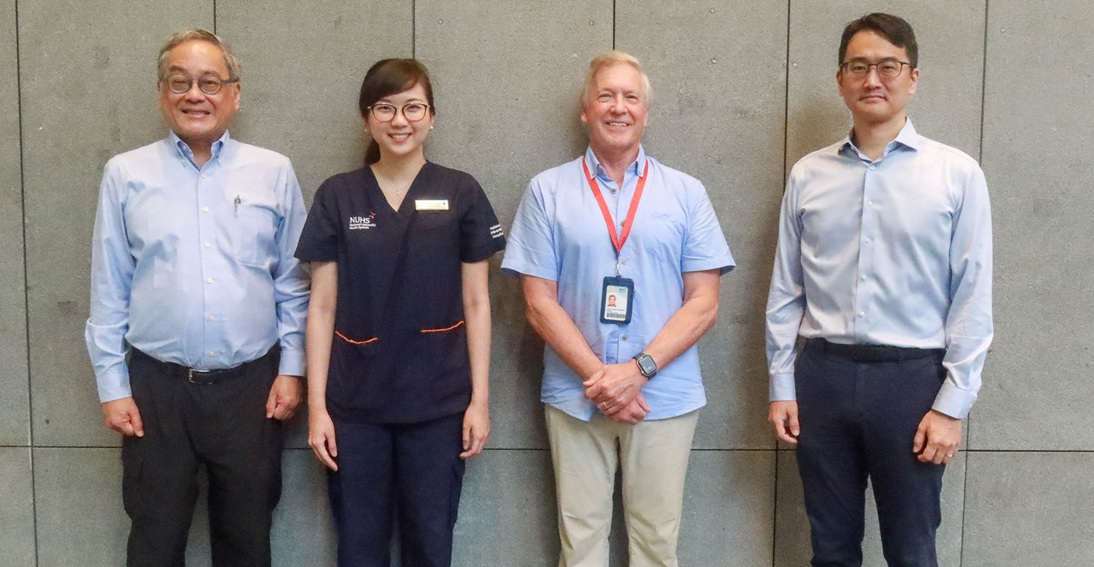
Image credit: NUS Medicine
Scientists at the National University of Singapore (NUS Medicine)'s Yong Loo Lin School of Medicine have found proteins in the blood that predict cognitive decline and dementia in individuals with cerebrovascular disease.
A first-of-its-kind study in Singapore conducted by Professor Christopher Chen, Deputy Chair of the Healthy Longevity Translational Research Programme (TRP) at NUS Medicine, analysed more than 1,000 proteins in blood samples from a local cohort of patients. An analysis of 528 patients from the National University Hospital (NUH) and St Luke's Hospital in Singapore was conducted.
“One of our findings was the characterisation of a blood protein signature for future cognitive decline. Using advanced proteomic technologies, we profiled over a thousand blood proteins tied to neurodegeneration, inflammation, and vascular dysfunction, which are key contributors to dementia” says Professor Arthur Mark Richards from the Cardiovascular-Metabolic Diseases TRP at NUS Medicine.
The team found that people with dysregulated levels of these proteins were more likely to develop future dementia and cognitive deterioration, even after accounting for age and other health conditions. These proteins are also linked to changes in brain structure, such as shrinkage in brain volume and signs of small vessel disease, which are early warning signs of dementia. When these biomarkers were combined with clinical risk factors, prognosis of cognitive decline was significantly enhanced, highlighting the potential of integrating blood based tests with routine clinical assessments for earlier and more accurate diagnosis.
Prof Chen said, “The objective of our research was to identify better ways to detect and predict dementia, especially in Southeast Asian populations, who may present with unique risk profiles due to higher rates of co-existing conditions such as cerebrovascular disease.” Prof Chen is also from the Department of Pharmacology at NUS Medicine, and is the Director of the Memory, Ageing and Cognition Centre at the National University Health System (NUHS).
In addition to the predictive potential of longer-term cognitive health, the team’s findings may help uncover the biological mechanisms behind dementia, offering new possibilities for targeted therapies. Further, researchers will examine how these blood proteins function in the body in order to develop novel treatments for dementia.




